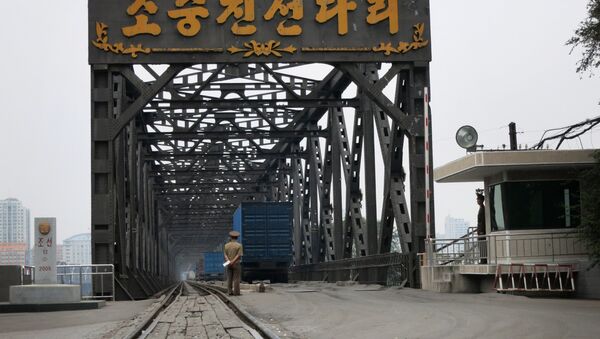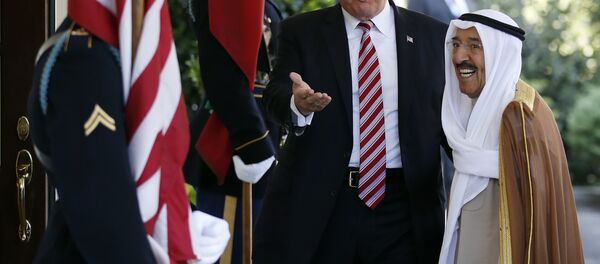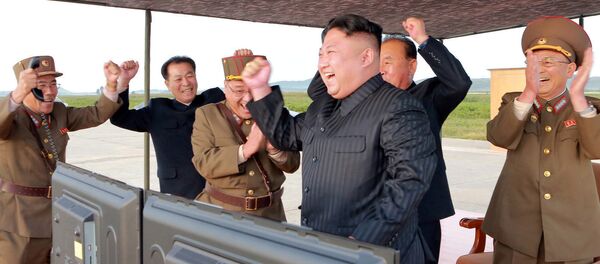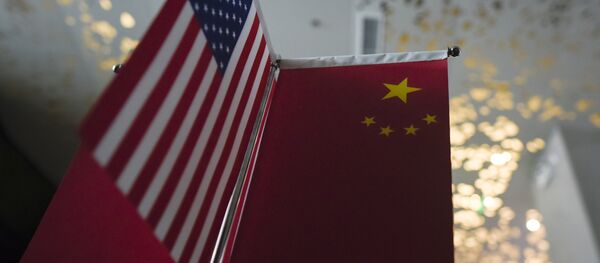Earlier this week, the US Treasury Department disclosed before Congress that the People's Democratic Republic of Korea (DPRK) used a spy-movie scheme to sell coal as international trade is increasingly constrained by UN sanctions. According to the US Treasury, Russia plays a major role in Pyongyang's sanction workarounds, while China is seen to be backing away from its unruly neighbor.
SCMP reporter Liu Zhen outlined eight primary tools that allow the DPRK to continue functioning as a viable nation-state.
According to the US Treasury, Chinese businessman Chi Yupeng allegedly used his company Dandong Zhicheng Metallic Materials to buy steel and anthracite coal from North Korea in exchange for nuclear and missile components.
But before the Koreans can trade the coal, they need to have it delivered. Testifying before US House Foreign Affairs Committee, Assistant Treasury Secretary for Terrorist Financing Marshall Billingsley unveiled a smuggling scheme that would make a cool movie.
According to their report, Chinese vessels turn off navigational transponders that allow them to be tracked remotely halfway to North Korea. Then the ships go to Korean ports and load coal, which the US Treasury allegedly proved using satellite photos. After that, ships return to the same point where they switched their transponders off, re-activate them and head toward Russia.
Pyongyang also allegedly resorts to falsifying ship registrations. Of 21 vessels of Pyongyang's Ocean Maritime Management company (OMM), 18 are listed as domestic ships, despite some enter international waters occasionally, the report says.
According to the Philippines' Manila Bulletin news website, South Pacific nations took action after Fiji claimed that it had identified at least 20 ships flying Fijian flags but with no registration. The Bulletin quoted New Zealand's Foreign Affairs Minister Gerry Brownlee saying that Pacific countries, including his own, are concerned that the DPRK is using falsely-flagged cargo ships as an avenue to trade goods to get around sanctions. Now 18 states are set to launch a joint audit of every ship registered in the Pacific, searching for ties to Pyongyang.
"What we do know is that declared North Korean GDP (gross domestic product) is not big enough to support the nuclear program that they're running so there has to be significant black market or offbook revenue going into the country," Brownlee said.
The SCMP report describes the Mansudae Overseas Project, a group of construction companies noted by the UN as generating dollar revenue for Pyongyang.
In addition, the DPRK uses front companies that set up bank accounts, enabling Pyongyang to obscure international bank transfers. The SCMP quotes a UN report claiming that Glocom, a North Korean company that manufactures military communications devices, used a number of front companies that have themselves been used to make payments to clients.
"A single invoice was often settled through a series of small transactions," the report noted.
A variation of this method involves diplomatic workers opening multiple bank accounts — sometimes for themselves, sometimes in the name of the front companies.
Pyongyang has been surprisingly successful in international weapons sales. According to the SCMP, North Korea manufactures and sells weapons, and even provides military training services to many nations, particularly on the African continent.
"A United Nations investigation said buyers included Angola, the Democratic Republic of Congo, Eritrea, Mozambique, Namibia, Syria, Uganda and Tanzania. Benin, Botswana, Mali and Zimbabwe were also investigated for their ties with North Korean companies," the report read.
Sinotruk is a Chinese truck manufacturer that confirmed the sale of civilian trucks to the DPRK, but denied allegations of military cooperation.





